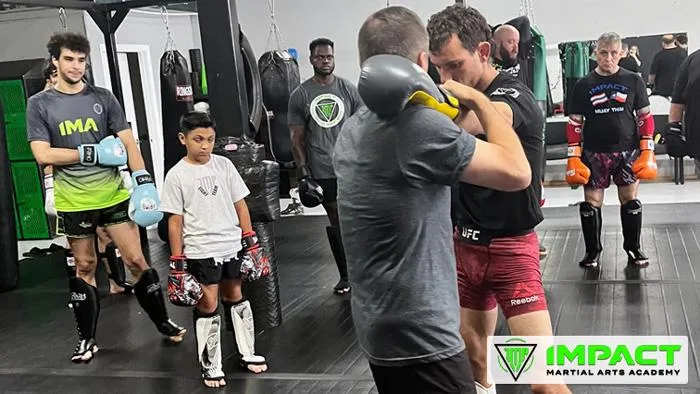
The Psychology of Reactivity in Muay Thai Training
Mental Health & Wellness/Martial Arts & Fitness/Community & Relationships/
April 04, 2024•2 min read
Unleashing the Power of Instinct: The Psychology of Reactivity in Muay Thai Training
The Psychology of Reactivity in Muay Thai Training
In the dynamic realm of Muay Thai, the ability to react swiftly and decisively can often make the difference between victory and defeat. Behind every lightning-fast strike and evasive maneuver lies a complex interplay of cognitive processes and neurological mechanisms. It's our mission to delve into the inner workings of the fighter's mind, exploring how training can unlock the innate potential for rapid reaction and make actions second nature.
Understanding Reactivity:
At the core of reactive performance in Muay Thai lies the concept of procedural memory, a component of long-term memory responsible for storing information about how to perform various tasks. This includes motor skills and learned behaviors, such as executing specific techniques or responding to opponent's movements. When faced with a stimulus in the ring, fighters tap into this reservoir of knowledge, allowing them to react almost instinctively.
Training for Reactivity:
To access the part of the brain that facilitates rapid reactions, Muay Thai practitioners must undergo specialized training regimens designed to strengthen procedural memory and streamline cognitive processes. Here are some key training techniques:
Repetition and Drill Work: Repetition is the cornerstone of developing procedural memory. By repeatedly practicing techniques and combinations, fighters reinforce neural connections, making actions more automatic and less reliant on conscious thought.
Simulated Sparring: Engaging in controlled sparring sessions mimics the unpredictability of real fights, providing opportunities to practice reacting to various stimuli in a dynamic environment, without heightened stress. This helps fighters develop the ability to read their opponents and respond effectively in real-time.
Visualizations and Mental Rehearsal: Mental imagery techniques can enhance reactive performance by activating the same neural pathways involved in physical execution. Visualizing successful reactions and scenarios primes the brain for optimal performance during actual fights.
Stress Inoculation: Exposing fighters to stressors and pressure situations in training helps desensitize them to the physiological and psychological effects of adrenaline and anxiety. This enables them to maintain composure and clarity of thought during high-pressure moments in the ring.
Feedback and Analysis: Providing constructive feedback and analyzing performance through video review allows fighters to identify areas for improvement and fine-tune their reactive skills. This reflective process fosters continuous growth and refinement.
Conclusion:
In the fast-paced world of Muay Thai, mastery of reactive performance is essential for success. By understanding the cognitive processes involved and implementing targeted training strategies, fighters can access the part of the brain that allows them to react instinctively and make split-second decisions with precision. Through diligent practice and mental conditioning, fighters can elevate their reactive skills to an elite level, making actions second nature and achieving peak performance in the ring.
Welcome to impact Martial Arts Academy! We're thrilled to have you take the first step toward your fitness journey
IMPACT MARTIAL ARTS ACADEMY
Thanks for contacting us!
We will be in touch shortly.If you contacted us outside of business hours it might take us a bit longer to respond.
